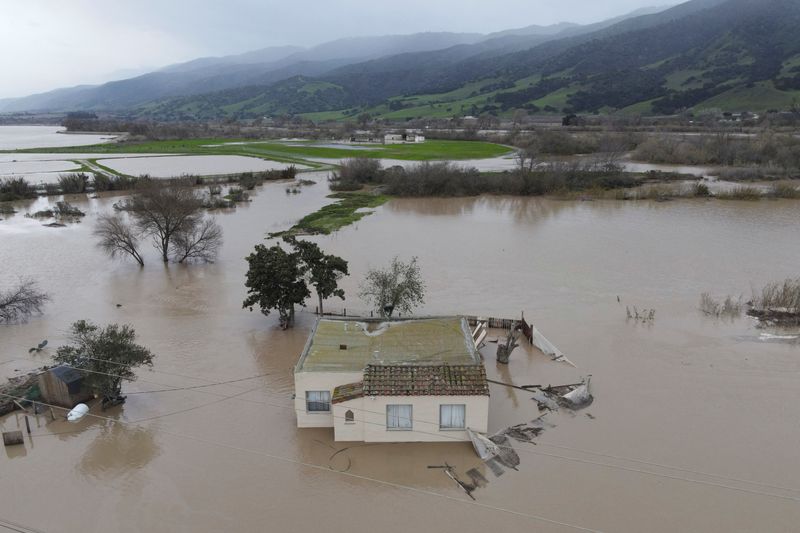By Sharon Bernstein and Nathan Frandino
SALINAS, Calif. (Reuters) - California's Salinas River began creeping over its banks on Friday morning, flooding roads leading to nearby communities where 24,000 people were urged to evacuate in the face of yet another in a series of storms that have pelted the state.
Farmers worked feverishly to erect berms to protect their fields in the part of Monterey County just off California's central coast, while residents lay sandbags or sought to leave before rising water cut access to their homes.
To the north in San Francisco, officials on Friday warned of flooding and power outages, and asked residents to avoid unnecessary travel over the weekend.
Friday's storms were the latest in a series of so-called atmospheric rivers that have deluged California since late December. The storms have killed at least 19 people, flooded inland areas and generated three-story high waves along the coast.
The weather service AccuWeather estimates the storms have caused up to $34 billion in damage thus far.
"It's a tremendous amount of water," said Monterey County Chief Public Information Officer Nick Pasculli, describing the slow rise of the Salinas River. Visiting the area on Friday morning, Pasculli saw the muddy water creep onto secondary and tertiary roads and watched farmers rush to protect their assets.
On Thursday, rain-soaked Californians took advantage of a break in the weeks-long deluge to haul away dead trees, restore downed power lines and prepare new stacks of sandbags. But by Friday the rain had begun anew.

At least two more storm systems were set to pound California and the Pacific Northwest starting on Friday and over the weekend, the National Weather Service said, including another atmospheric river, systems of dense moisture funneled into California from the tropical Pacific. Seven such weather systems have already hit the state over the past two weeks.
The heavy rains have eased California's historic drought but not ended it, the U.S. Drought Monitor showed on Thursday. The state is no longer considered to be in extreme drought or exceptional drought, the two worst categories, but much of the state is still considered to be experiencing moderate or severe drought conditions.